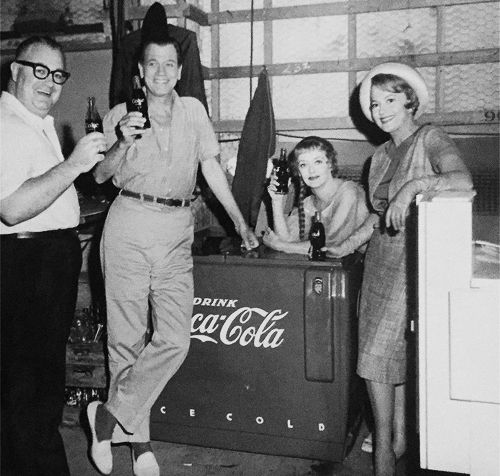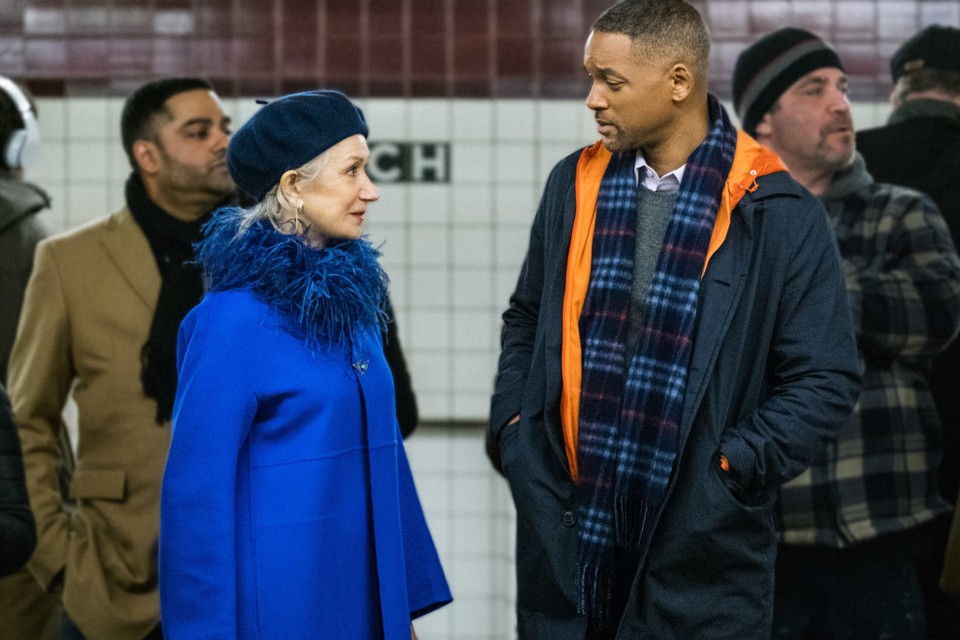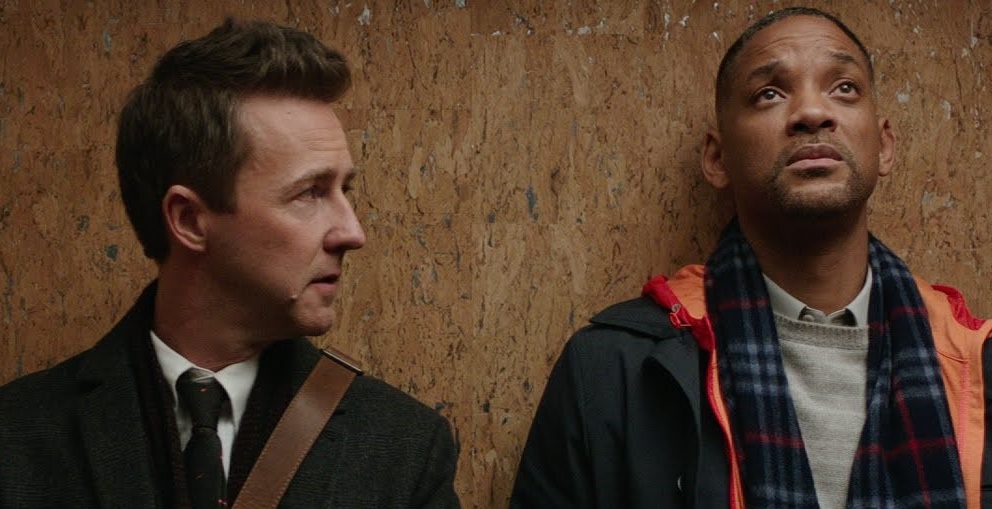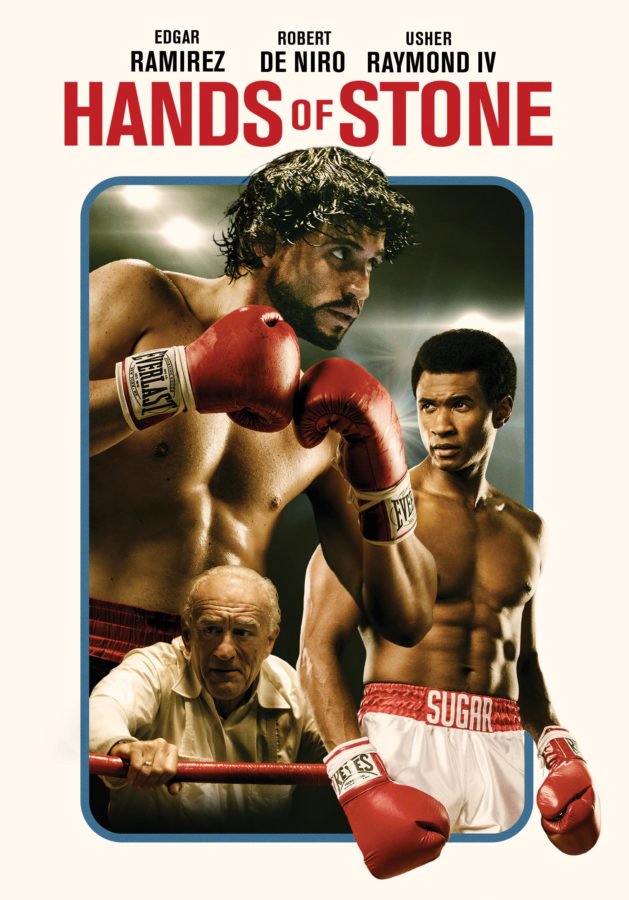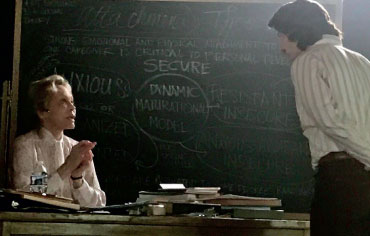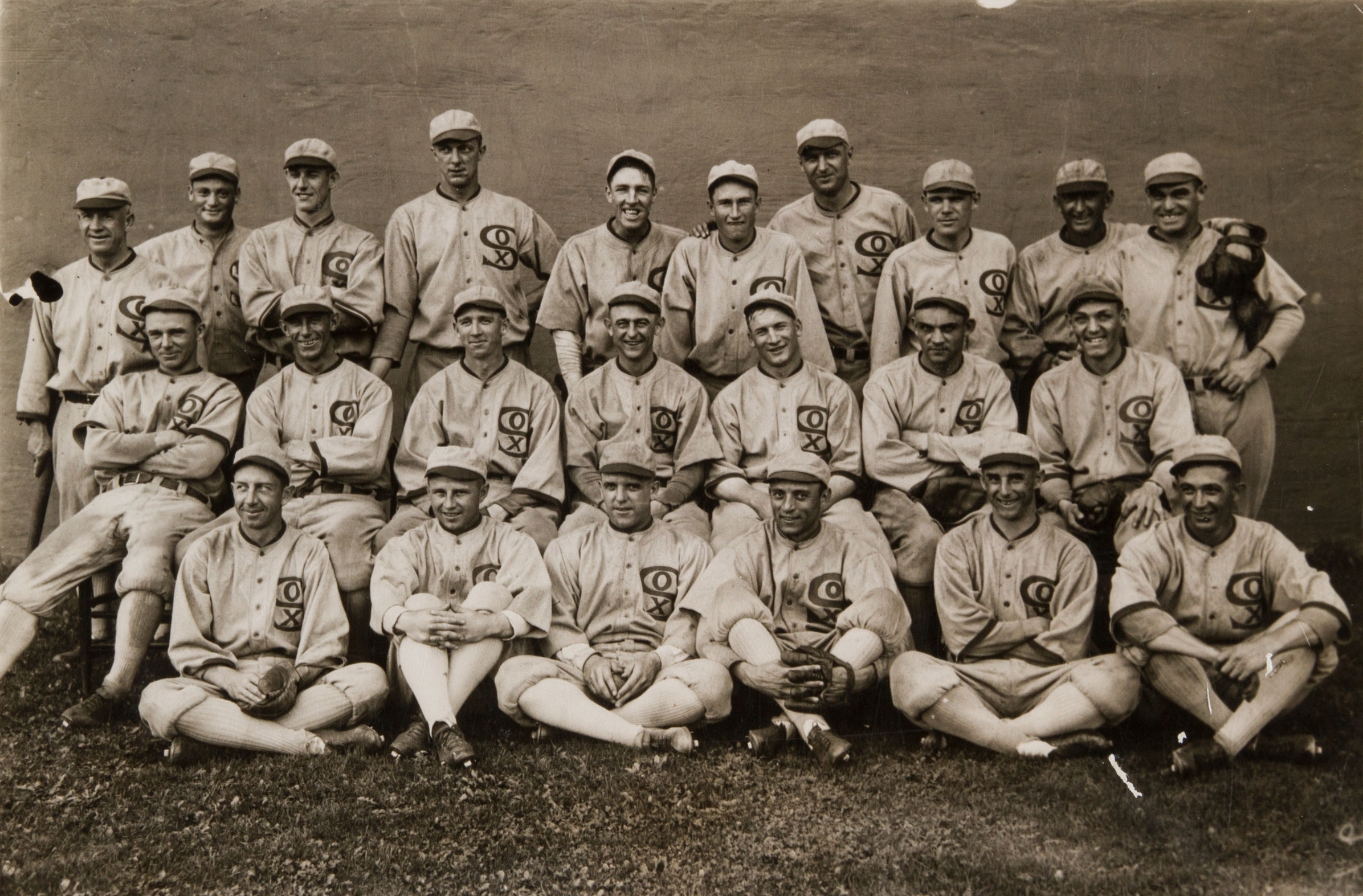FEUD: AND THE WINNER IS...
(THE OSCARS OF 1963)
It looks like the bitter rivalry between Academy Award winners Joan Crawford and Bette Davis is coming to a head. For these two divas of the silver screen, nabbing an Oscar is a mark of respect, power, prestige, and one-upmanship. Now, with And the Winner Is..., we see both the machinations for and against someone getting this prize.
Joan Crawford (Jessica Lange) is livid beyond anything that her
What Ever Happened to Baby Jane? costar Bette Davis (Susan Sarandon) received a Best Actress nomination for the film and she didn't. Things aren't helped by the fact that Davis is in her own way flaunting her nomination: at a press conference, when asked about Crawford's snub, Davis bitchily responds, "Define 'snub'".
Quips like that essentially wave the red flag at a charging bull, and you don't want to wave them at someone as shrewd as Crawford, who is a terror when it comes to her own career. Davis is the odds-on favorite to win over Anne Bancroft (
The Miracle Worker), Katharine Hepburn (
Long Day's Journey Into Night), Lee Remick (
Days of Wine and Roses), and Geraldine Page (
Sweet Bird of Youth). Crawford knows this, and is despondent. Should Davis win, she'll be the first actress to have three Best Actress Oscars, something that had not been achieved. Crawford's lone Oscar, for
Mildred Pierce, now won't be enough comfort against that grand achievement.
Enter Hedda Hopper (Judy Davis), Crawford's frenemy and more important, Davis' enemy. In a case of 'the enemy of my enemy is my friend', the two cook up a scheme to know Davis out of the running. It's a classic case of 'good cop/bad cop': Hopper will badmouth Davis to various Academy members while Crawford will talk up other nominees. Two candidates are selected for this charm offensive: Page and Bancroft. Unlike the cantankerous, reclusive Hepburn or the 'television actress' Remick, both are primarily theater actresses (thus generally unknown or with no clout in Hollywood). As such, they are no threat to Crawford.
Adding fuel to the fire, Crawford contacts both Page (Sarah Paulson) and Bancroft (Serinda Swan) to accept the Oscar on their behalf. Crawford essentially cajoles Page into not going, while Bancroft, tied up in a play, is more enthusiastic and respectful about Crawford's offer.
Davis, however, isn't without friends in the industry, respected friends like fellow two-time Oscar winner Olivia de Havilland (Catherine Zeta-Jones). Away in Paris, de Havilland really doesn't want to go, but Davis asks her to come with her. De Havilland knows a thing or two about feuds (and as a digression, will
Feud producer Ryan Murphy ever tackle the infamous de Havilland-Joan Fontaine war which makes the Crawford-Davis war look like a tea party?).
De Havilland agrees, and does her best to prop up a nervous Davis, who feels that a third win will put her back on top. Davis at heart wants to win, but is also terrified of what a loss might mean for her career.
At last, it is Oscar night. Crawford prepares for this night as if it were D-Day: a phalanx of wardrobe and make-up people come to make her into a Silver Goddess. Crawford, snubbed and determined to see her mortal enemy brought down, is determined to make this night her own. She is so invested in destroying Davis' chances that she ignores the advise of her friend, George Cukor (John Rubinstein) to call of the war.
Davis and de Havilland wait while the night goes on. Crawford, for her part, has taken over the green room to make it into a party...her party. She graciously welcomes the other winners, and makes a splash when presenting Best Director (having bullied her way into it, ordering the Academy President to let her present either Director or Picture). De Havilland warns Davis not to go to the green room, but Davis goes and the two bitter rivals glare at each other.
Crawford presents Best Director to David Lean for
Lawrence of Arabia, and at last, Maximillian Schell presents Best Actress. Davis, Crawford, and de Havilland all await.
And the winner is...Anne Bancroft for
The Miracle Worker. Davis momentarily moves towards the stage and suddenly stops, as if gasping for air. Crawford coolly puts out her cigarette and takes that long walk to the stage. De Havilland just stares in disbelief as Joan Crawford 'wins' Best Actress over Bette Davis.
De Havilland and Davis go back home, stunned at the turn of events. Davis angrily acknowledges that this was essentially her last chance and she got outplayed. Crawford, who hogged the limelight over the actual winners that night (Gregory Peck in
To Kill a Mockingbird, Patty Duke in
The Miracle Worker, Ed Begley in
Sweet Bird of Youth, and Lean), goes home and places the Oscar next to her own, a sad symbol of such much.
The idea that the Oscars are awarded strictly on merit alone is a laughable one, but cute nonetheless. Academy members are wined and dined and flattered and gently pushed, prodded, and manipulated to vote for certain people. It may not be as wild as the late 1960s, where such abysmal turkeys as
Doctor Dolittle and
Hello, Dolly! received Best Picture nominations based on the insane campaigning, but Oscars are still not given out without some undue influence.
I'll go to my grave insisting that
Eddie Redmayne's win for The Theory of Everything was a result of a brilliant campaign where he parlayed an 'aw-shucks' persona, this slightly bumbling but endearing and sweet young man into a shameless win. It also helped that he is British, played a real-life figure, and a disabled figure: three things the Academy loves to reward.
It was a cold, calculated, mechanical performance, but Redmayne knew how to win and like Crawford, played the game in his favor well.
His efforts to get a second consecutive Oscar for
The Danish Girl blew up in his face (good): playing up this notion that giving him the Oscar for playing a transgender was a triumph for equality met opposition from actual transgendered people, his performance was more criticized than
TOE, and his revelation of his 'generosity' (
he "spontaneously" paid for other actors' rent) cut no ice with Academy members who aren't fond of giving back-to-back Oscars to people. It also seemed a little
too convenient to have this angelic information appear at the height of Oscar season.
The more things change...yet I digress.
And the Winner Is...is a greater showcase for Zeta-Jones as de Havilland, and like Lange, she has not convinced me that she IS Olivia de Havilland. To me, she doesn't sound or particularly look like de Havilland, but she gives a strong performance as the loyal friend who is not overwhelmed by the machinations of the film industry. Paulson's Page came across as a bit of a wimp, while Swan's take on Bancroft, though only one scene, was stronger: Bancroft was awed by Crawford coming to her show, but also aware what was behind her gesture. Perhaps because Paulson had to play the scene over the telephone and Swan had Lange to react to onscreen made the difference.
This was Lange's best hour on
Feud: her catty, bitchy left-handed compliments to everyone, the way she bullied everyone who stood in her way without anything but her sheer force of will. When the Academy secretary tells the president, "Joan Crawford's headed this way and she's not slowing down," it's both amusing and a sign of Crawford's single-minded determination to bring her hated rival down.
As a side note, I don't think Crawford really was as bitchy and self-centered as
And the Winner Is...makes her out to be. Yes, she was self-centered, but I don't think she hogged the photographers' attention to the detriment of the actual winners to the level
Feud showed.
The episode is also full of wonderful, brilliant moments, such as when Crawford prepares for war...I mean, the Academy Awards. There is something almost surreal about the montage: part elegant, part Satanic. Kudos to Ryan Murphy for this and another fantastic moment: a long tracking shot where Crawford leads Lean backstage to the press (though, unless Lean wasn't there in person to accept for
Bridge on the River Kwai, why would he ask where to go, since he had won Best Director once already prior to
Lawrence of Arabia).
My one complaint would be that Murphy opted not to let Crawford be real bitchy to Davis, sweeping past her to accept Bancroft's Oscar with the words, "Step aside. I have an Oscar to accept". Maybe he thought it would be gilding the lily, and he figured his take was more dramatic, but it has been documented that Crawford verbally bitch-slapped Davis that dramatic night.
In my own
Oscar retrospective for 1962, I would have voted for Davis to win over Bancroft, though each nominee was excellent and worthy of a win.
And the Winner Is...is as close to reality about how these awards can be won and lost not on the work onscreen, but the one behind the screen.
8/10
Next Episode: Hagsploitation





